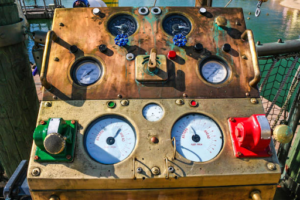In the vast and challenging world of maritime operations, maintaining vessel integrity and operational efficiency is paramount. The marine industry is notorious for its rigorous demands, with vessels constantly facing the brunt of harsh sea conditions and complex technical requirements. To ensure seamless operations, reduce downtime, and enhance safety, the adoption of a Marine Planned Maintenance System (PM) stands as a game-changer. This article explores the multitude of advantages offered by a Marine Planned Maintenance System, shedding light on how it can transform the way maritime operations are managed.
A New Era in Maritime Maintenance
Marine Planned Maintenance Systems represent a sophisticated approach to managing the maintenance of vessels. Unlike traditional reactive maintenance strategies, which address issues only after they arise, a Marine PM System proactively schedules and manages maintenance tasks to prevent breakdowns and optimize performance. This shift from a reactive to a proactive maintenance strategy ensures that vessels remain in peak condition, minimizing disruptions and maximizing operational efficiency.
Enhancing Operational Efficiency
Operational efficiency is the cornerstone of successful maritime operations. Marine Planned Maintenance Systems contribute significantly to this by streamlining maintenance processes and reducing unexpected failures. By systematically scheduling maintenance tasks based on a vessel’s specific needs and operational history, the system ensures that critical components are serviced regularly. This approach not only prevents unplanned breakdowns but also optimizes the performance of machinery and equipment, leading to smoother and more efficient voyages.
Reducing Downtime and Costs
One of the most significant benefits of a Marine Planned Maintenance System is its ability to reduce downtime. Unplanned maintenance and repairs can result in costly delays and operational disruptions, impacting both the schedule and budget of maritime operations. With a well-implemented PM System, maintenance activities are planned and executed during non-operational periods or scheduled dockings. This proactive approach minimizes the risk of unexpected failures and reduces the overall downtime of the vessel, leading to cost savings and improved financial performance.
Improving Safety and Compliance
Safety is a critical concern in maritime operations, and the integrity of a vessel’s systems directly impacts the safety of its crew and cargo. A Marine Planned Maintenance System plays a crucial role in enhancing safety by ensuring that all equipment and systems are maintained to the highest standards. Regular inspections, preventive maintenance, and timely repairs contribute to a safer operating environment, reducing the risk of accidents and malfunctions. Additionally, compliance with international regulations and standards is more easily achieved with a structured maintenance plan, helping vessels adhere to legal requirements and industry best practices.
Maximizing Equipment Lifespan
The longevity of marine equipment is directly related to how well it is maintained. A Marine Planned Maintenance System helps extend the lifespan of machinery and equipment by ensuring that maintenance is carried out at regular intervals. This preventive approach addresses potential issues before they escalate, reducing wear and tear on components. By maintaining equipment in optimal condition, vessels can avoid premature replacements and repairs, ultimately leading to lower lifecycle costs and increased asset value.
Streamlining Documentation and Record-Keeping
Effective maintenance management requires meticulous documentation and record-keeping. Marine Planned Maintenance Systems facilitate this process by providing a centralized platform for tracking maintenance activities, inspections, and repairs. Detailed records of maintenance tasks, including dates, actions taken, and any issues encountered, are systematically logged and easily accessible. This comprehensive documentation supports informed decision-making, enhances transparency, and simplifies reporting for audits and regulatory compliance.
Enhancing Crew Efficiency and Morale
Crew efficiency is integral to the smooth operation of a vessel. A well-organized Marine Planned Maintenance System contributes to crew efficiency by providing clear guidelines and schedules for maintenance tasks. This structured approach reduces confusion and ensures that maintenance activities are carried out promptly and effectively. Moreover, when maintenance is well-planned and executed, it minimizes the likelihood of emergencies and urgent repairs, leading to a more predictable and less stressful work environment for the crew. Enhanced efficiency and morale translate into improved performance and overall job satisfaction.
Leveraging Advanced Technology
Modern Marine Planned Maintenance Systems harness the power of advanced technology to optimize maintenance processes. These systems often integrate with other maritime technologies, such as condition monitoring sensors and diagnostic tools, to provide real-time data and insights. This integration enables predictive maintenance, where potential issues are identified before they manifest as significant problems. The use of technology not only improves the accuracy and efficiency of maintenance activities but also empowers operators with valuable information to make data-driven decisions.
Customizable Solutions for Diverse Needs
Marine Planned Maintenance Systems are highly adaptable and can be customized to meet the specific needs of different vessels and operations. Whether managing a fleet of cargo ships, passenger vessels, or specialized marine equipment, a Marine PM System can be tailored to address the unique requirements of each vessel. This flexibility ensures that maintenance strategies are aligned with the operational goals and challenges of the maritime business, providing a personalized approach to maintenance management.
Facilitating Strategic Decision-Making
In the dynamic world of maritime operations, strategic decision-making is crucial for optimizing performance and achieving business objectives. A Marine Planned Maintenance System supports strategic decision-making by providing comprehensive data and insights into the maintenance history and condition of equipment. This information enables operators to make informed decisions about scheduling, budgeting, and resource allocation. By leveraging data-driven insights, maritime businesses can strategically plan for future maintenance needs, optimize resource utilization, and enhance overall operational efficiency.
Building Long-Term Value and Competitive Advantage
Investing in a Marine Planned Maintenance System is a strategic move that contributes to long-term value and competitive advantage. By ensuring that vessels are well-maintained, operationally efficient, and compliant with regulations, maritime businesses can build a reputation for reliability and excellence. This reputation not only attracts clients and business opportunities but also positions the company as a leader in the industry. The long-term benefits of a Marine PM System include sustained operational performance, reduced costs, and enhanced competitiveness in the maritime market.

Conclusion
A Marine Planned Maintenance System is a vital component of modern maritime operations, offering a range of benefits that enhance efficiency, safety, and financial performance. By adopting a proactive maintenance approach, maritime businesses can reduce downtime, extend equipment lifespan, and improve crew morale. With the integration of advanced technology and customizable solutions, a Marine PM System provides a comprehensive and strategic approach to maintenance management. Embracing this innovative system positions vessels and maritime businesses for success, ensuring smooth operations, compliance, and a competitive edge in the ever-evolving maritime industry. Navigate the waters of maritime maintenance with confidence, and experience the transformative impact of a well-implemented Marine Planned Maintenance System.






